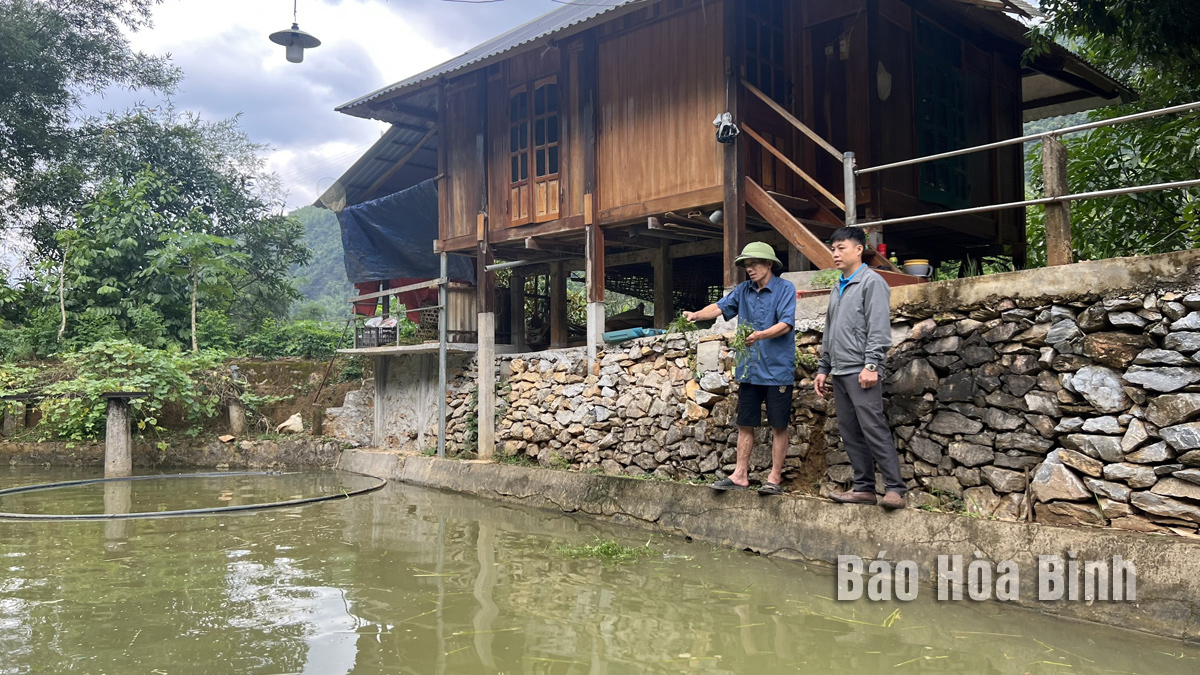



Dam xanh fish farming model of Kha Van Nhi (left), a resident of Nghe village, Van Mai commune (Mai Chau) brings about high economic efficiency.
Kha Van Nhi, a resident of Nghe village, who owns a 700-sq.m fish pond said that his family has been raising dam xanh fish for nearly 15 years. This species adapts quickly to the local environment, and grow well with minimal losses.
With his extensive experience in fish farming, along with regular care and monitoring, the fish in his pond have grown healthily, ensuring good sales. Each dam xanhcrop takes about three years to mature, with individual fish weighing between 1.5 and 2 kilograms. At a price of 230,000-250,000 VND (around 9-9.8 USD) per kilogram of the fish, his family earns an annual income of 80-100 million VND.
The natural environment in Van Mai commune, with its network of rivers and streams, steady water flow, and cool, clear waters, provides ideal conditions for dam xanh fish. This species is disease-resistant and resilient to harsh weather, especially the cold mountain climate of Mai Chau, making it suitable for wider cultivation. As a result, nearby communes like Mai Hich and Mai Ha, with similar natural conditions, have also adopted this fish farming model.
Dam xanh fish are now widely raised in areas along cold streams, such as in villages of Nghe, Khan, and Cum, with the total area of fish ponds in Van Mai surpassing 7ha. The raised fish have been well received in the market, with many customers saying that their flesh is as firm as that of wild-caught fish.
Currently, most Van Mai dam xanh fish are sold to hotels and restaurants in the district and some nearby provinces and cities. The commune has established a cooperative specialising on raising dam xanh fish, with 16 members who regularly share production techniques, work on developing the product as an OCOP item, and enhance the brand and value of the fish.
Kha Van Sanh, Chairman of the People’s Committee of Van Mai commune, said that to increase income for residents and add value to local agricultural products, the Party Committee and commune administration have prioritised expanding the fish farming area while ensuring consistent quality, aiming to make dam xanh fish a key local commodity.
To support residents in fish farming, the commune has launched credit and loan programmes, organised training courses, and arranged field trips for farmers to share experiences in raising dam xanh fish. As a result, many households have achieved stable incomes and successfully risen out of poverty.
Hoa Binh Province currently has over 870 hectares of tea plantations, with six districts having concentrated tea production areas that boast advantages in soil, climate, history, and distinctive tea varieties: Yen Thuy, Lac Thuy, Da Bac, Mai Chau, Tan Lac, and Luong Son.